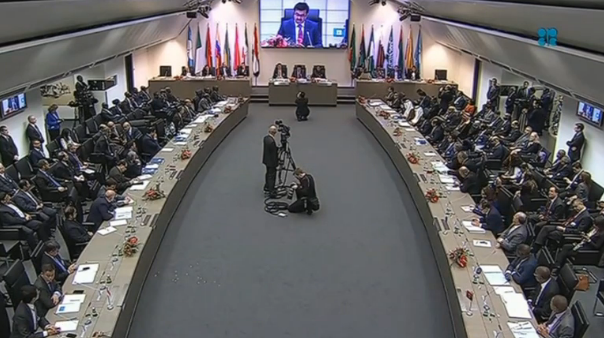
(Reuters) — The first of its kind in eight years: OPEC finally agreed to cut output.
Taking the biggest hit: OPEC’s largest pumper, Saudi Arabia. It’ll account for nearly half of the cartel’s deal to curb output by 1.2 million barrels a day from the current 33.6 million barrels. What’s more, non-OPEC producers, like Russia, agreed to reduce output as well. Combined, the cuts will amount to two percent of global production.
“This is a major step forward, and we are with my colleagues, we think that it is historic moment to come to this agreement, which will definitely help rebalancing the market, and it will help reducing the stock overhang,” OPEC president Mohammed Bin Saleh al-Sada said.
Helping make the deal possible: Saudi Arabia dropped its demand that its arch-rival cut back. Iran, which lost market share under Western sanctions, was allowed to slightly boost its production.
News of the accord fueled oil prices. U.S. crude futures soaring to just under $50 a barrel. Crude had fallen to as low as $28 amid the supply glut in mid-February.
But some oil experts expressed skepticism that oil producers would be able to keep their promises to slash output. OPEC next meets in May to monitor the deal.







